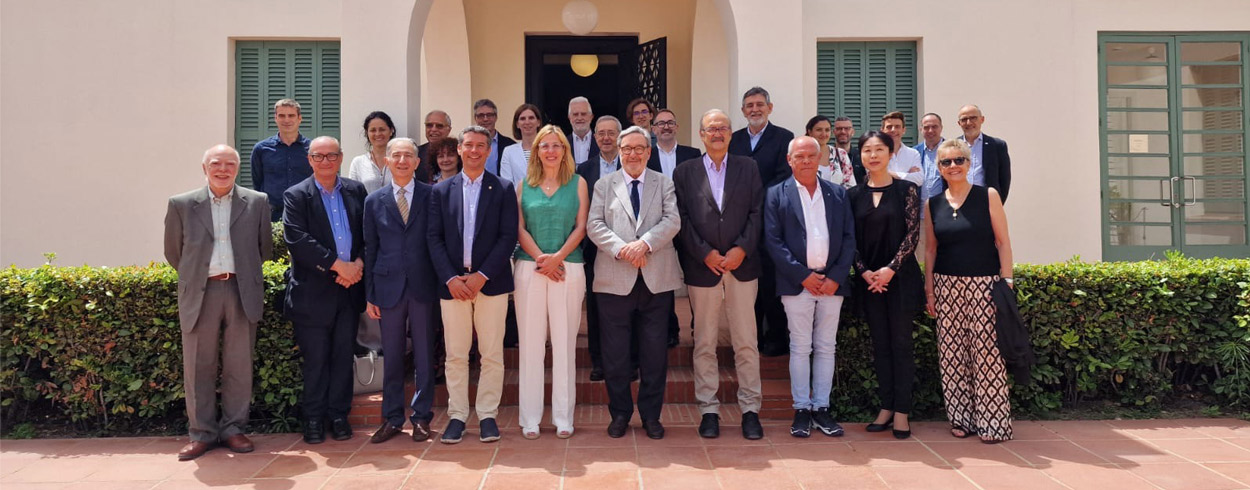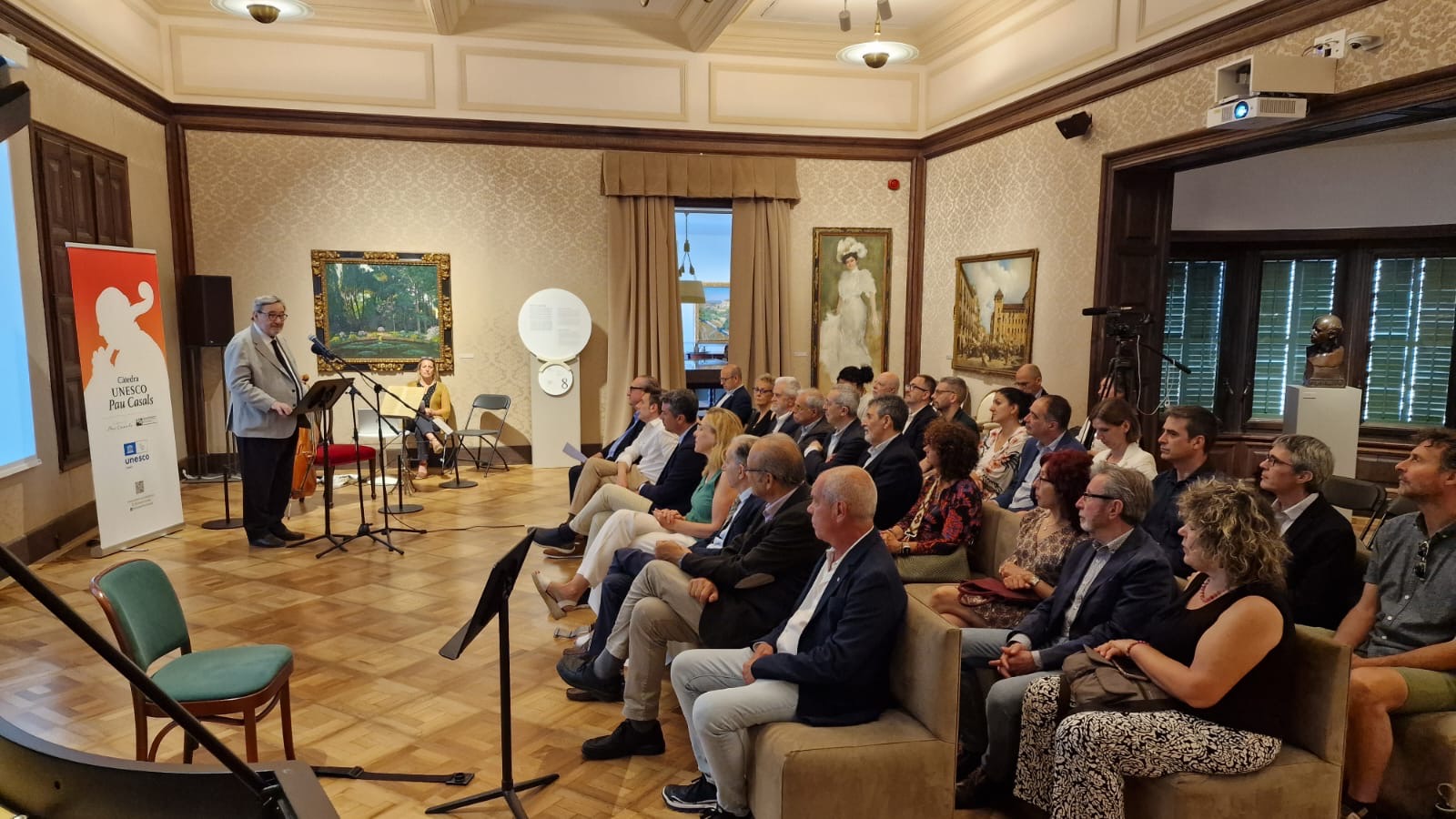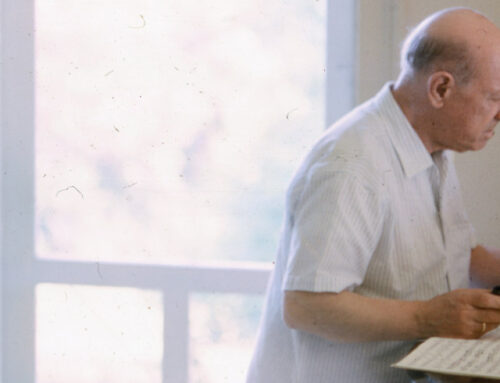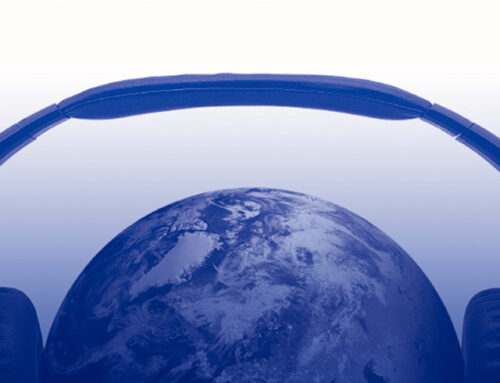
28/06/2024
The Pau Casals Chair becomes UNESCO Chair and joins UNESCO’s international cooperation programme
Sant Salvador, June 28, 2024 – The news was celebrated this Friday morning, 28 June, at the Pau Casals Museum (Sant Salvador, Tarragona) at an event attended by people, institutions and organizations that have provided their support to make this achievement possible.
The Pau Casals Chair in Music and the Defence of Peace and Human Rights, a project in agreement between The Universitat Oberta de Catalunya (UOC) and the Pau Casals Foundation has signed an agreement with UNESCO to be part of the UNITWIN/UNESCO Chairs Programme. The aim is to create an international network for the promotion of interuniversity cooperation, academic mobility, and research and knowledge management. Joining this programme opens the door to broadening the scope and outreach of the projects on which the chair focuses.
This agreement is a sign of the project’s value and the importance of Pau Casals’ musical and humanistic legacy, and a reminder of his great historical link with the UN. Casals was invited four times and commissioned to compose its hymn for peace, the Hymn to the United Nations. Likewise, in 1971, UN Secretary-General U Thant awarded him the United Nations Peace Medal.
The mission of the Pau Casals UNESCO Chair, which was created in 2022, is to foster contemporary research and knowledge, awareness-raising and debate around the musical and humanistic facets of Pau Casals and his extraordinary legacy, as well as the values he advocated throughout his life. It is directed by the historian Joan Fuster-Sobrepere, Associate Professor at the Faculty of Arts and Humanities of the UOC, and co-directed by Alfons Martinell, Emeritus Professor at the University of Girona and former director of its UNESCO Chair on Cultural Policies and Cooperation.
With the inclusion in the UNESCO program, the Pau Casals Chair aims to foster exchange and relationships with other university programs that share the same values. “This step represents acknowledgement from a very important international organization, the United Nations,” said Fuster-Sobrepere. “It provides access to an environment where we can strengthen international relations that can be very beneficial for all the work we can do in the coming years”.
In turn, Martintell said: “We intend to create an international research network on the defence and dissemination of these principles, collaborating with other chairs as well as with a number of organizations both in Spain and internationally. […] The idea is to establish cooperation and research networks.”





